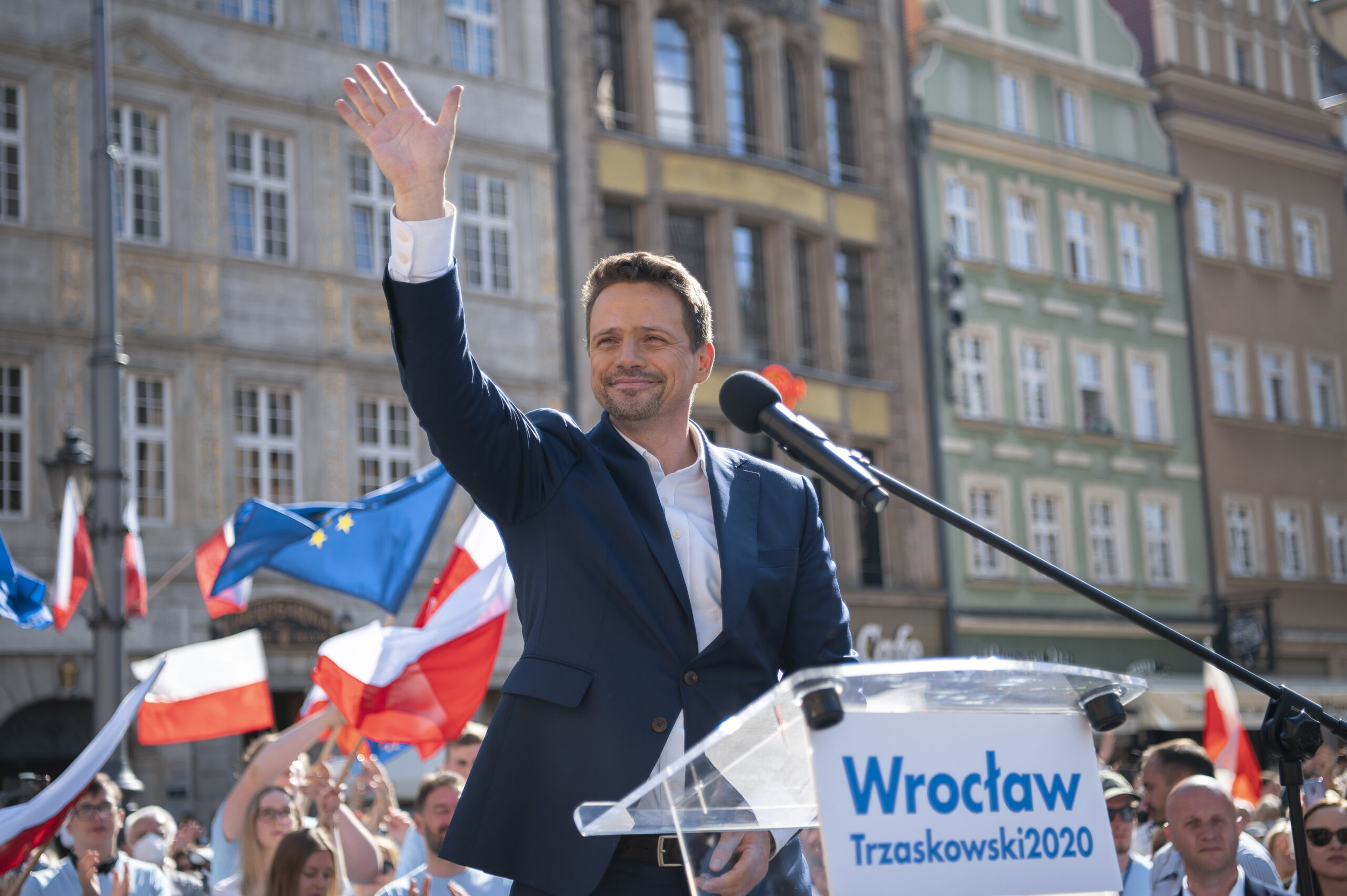Rafał Trzaskowski, the mayor of Warsaw and deputy leader of Poland’s largest opposition party, is now the country’s most trusted politician. It is the first time he has led the ranking – compiled monthly based on polling by IBRiS for Onet – and the first time an opposition figure has topped it in over two years.
Meanwhile, figures associated with Poland’s national-conservative ruling camp have seen large declines in trust. President Andrzej Duda recorded a monthly drop in trust of 4.2 percentage points, though remains second in the ranking.
The most distrusted politicians are justice minister Zbigniew Ziobro (who is distrusted by 66.3% of respondents); Jarosław Kaczyński (66%), chairman of the ruling Law and Justice (PiS) party; and deputy prime minister Jacek Sasin (56%).
🔴 Poziom zaufania do polityków w kwietniu!
TOP 3⃣ – zaufanie@trzaskowski_ 40,6%@AndrzejDuda 38,7%@MorawieckiM 37,8%
TOP 3⃣ – nieufność@ZiobroPL 66,3%#Kaczyński 66%@SasinJacek 56%@IBRiS_PL dla @OnetWiadomosci https://t.co/bIWupU2PMc pic.twitter.com/JZ8qXPlTzG
— IBRiS (@IBRiS_PL) April 13, 2021
Trzaskowski, who has served as Warsaw’s mayor since 2018 and last year stood as the main opposition presidential candidate, is trusted by 40.6% of Poles. However, he is distrusted by an even higher 43.6%.
The last opposition figure to lead the trust ranking was Donald Tusk in February 2019 (despite having formally left domestic Polish politics in 2014). However, the former prime minister has since dropped to a trust rating of 31%, while 50.8% distrust him.
After his failed presidential bid, Trzaskowski launched a new movement, Shared Poland (Wspólna Polska), in October. The grouping was meant to complement, rather than compete with, his centrist Civic Platform (PO) party. However, since then it has had little visibility.
Meanwhile, the leader of PO, Borys Budka, continues to struggle to win over the public. He enjoys only 18% trust and 48.5% distrust, while 8.1% say they do not even know who he is, despite him leading the largest opposition group.
Duda, who defeated Trzaskowski in July’s election to win a second term, has fallen to 38.7% trust, down from a high of 52.2% in September, when he topped the ranking. He is distrusted by 55.1% of respondents.
In third place is the prime minister, Mateusz Morawiecki, with 37.8% trust. That is also a significant decline from 48.7% in August last year, when he led the chart. Just over half (51.1%) of the public say they distrust the head of government.
The decline in Duda and Morawiecki’s popularity has coincided with the worsening coronavirus situation in Poland. While the country dealt effectively with the first wave of the pandemic, recording some of Europe’s lowest infection and death rates, it has been hit hard by the virus since the autumn.
As a result of the surge in cases, and the struggles of the health system to cope, Poland had the EU’s highest excess death rate in 2020. Last month it dropped to 50th out of 53 countries in Bloomberg’s Covid Resilience Index, which assesses how well the pandemic is being managed.
Nevertheless, the health minister, Adam Niedzielski, has risen rapidly in the trust ranking since his appointment in September. He is now in fifth place, with 34.5% trust. Almost uniquely among politicians in the ranking, he has a net positive trust rating, with only 31.4% of Poles distrusting him.
Last year, Niedzielski’s predecessor, Łukasz Szumowski, also rose rapidly in the trust rankings during the first wave of the coronavirus, before suddenly resigning in August following accusations of cronyism and misspending public money.
The only other politician to currently enjoy a net positive rating is Władysław Kosiniak-Kamysz, leader of the agrarian Polish People’s Party (PSL). While Kosiniak-Kamysz has struggled electorally, winning only 2.4% of the vote in last year’s presidential election, he is seen as a likeable figure able to appeal to both the centre and the right.
Meanwhile, last year’s political sensation, Szymon Hołownia – a TV presenter who, standing as an independent, came third in the presidential election with 14% of the vote before launching a new movement – has seen his star wane somewhat. He is now only trusted by 34.4%, his lowest figure since the elections.
Ziobro, the hardline justice minister, has long been around the bottom of the trust ranking. He has overseen a contested overhaul of the judiciary since 2015, which other polling indicates is seen by most of the public as an attempt to undermine the rule of law.
Meanwhile, Poland’s most powerful politician, Jarosław Kaczyński, remains a divisive figure. While trusted by 27.6%, placing him in the middle of the ranking, he is also distrusted by almost two-thirds of Poles. Sasin, who oversaw the botched attempt to organise a postal election last year, has also seen his distrust rise.
Main image credit: Platforma Obywatelska RP/Flickr (under public domain)

Daniel Tilles is editor-in-chief of Notes from Poland. He has written on Polish affairs for a wide range of publications, including Foreign Policy, POLITICO Europe, EUobserver and Dziennik Gazeta Prawna.




















